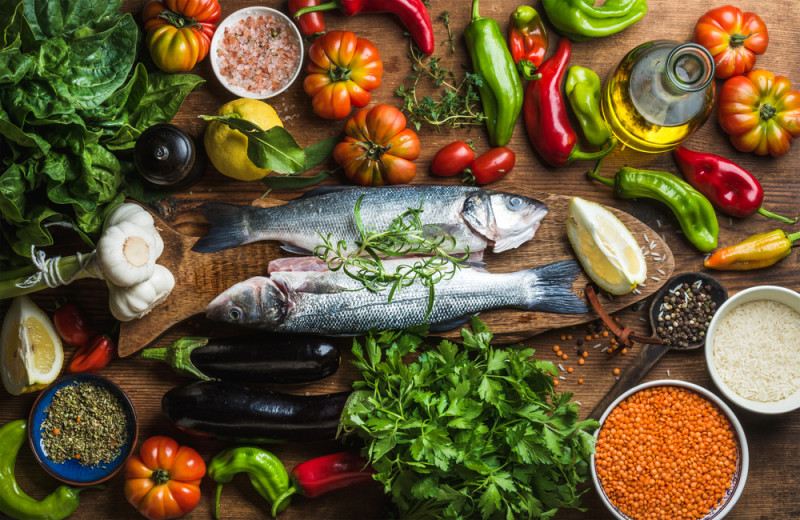How I Strengthen My Son’s Immune System to Keep Him Crisis-free
Written by |

The trouble with sickle cell disease is that it’s challenging to determine which end of the severity spectrum a person might fall on.
A person with sickle cell might do everything correctly — drink water, keep warm, take their medication, get enough rest — and still have severe crises. On the other hand, they might be carefree and barely have any pain.
Since we don’t know which cards we’ve been dealt, I prefer to err on the side of caution by complying with (most of) the recommended management guidelines. As the famous Dutch philosopher Desiderius Erasmus once said, “Prevention is better than cure.”
Infants and children with sickle cell are more at risk for infections, which can trigger a crisis. Some children start experiencing crises as early as 3 or 4 months old, while others barely get any until their late teens or adulthood.
My son Sebastian, now a toddler, hasn’t had a crisis, which is “a good sign” according to his pediatrician. She said, “You can sometimes predict how severely a child might be affected by how early crises start and how severe they are.”
So far, so good for us, but I am taking nothing for granted and keeping my eyes firmly on the prize: keeping him crisis-free!
I’ve often heard that a strong foundation is important for long-term success, which is why I’m focused on building my son’s immune system to ensure it’s strong enough to fight off any crisis-triggering infection.
It could be his genetics. It could be luck. Or it could simply be that I created an effective plan. Whichever way you see it, something is working.
So, what have I been doing?
I’ve been consistent with three things.
Nursing
Firstly, and most importantly, I nurse him. It’s a great way to boost my son’s fluid intake and pass on antibodies, nutrients, and beneficial gut bacteria that strengthen his immunity. I intend to continue nursing for as long as necessary. We are 14 months along.
Please note that I eat a healthy, Mediterranean-style diet. As a biomedical scientist and registered nutritionist, I believe this is crucial to ensure Sebastian gets quality, nourishing milk.
Diet and hydration
Secondly, I keep his diet as colorful and varied as possible. He eats lots of fruit (his current favorites are grapes, apples, and strawberries), vegetables (especially carrots, broccoli, and peas), beans, lentils, potatoes, and plenty of fatty fish. He also takes a multivitamin supplement, mainly for vitamin D, but also to boost his intake of nutrients that he may naturally become deficient in due to the nutritional demands of sickle cell.
He constantly drinks water, too, which is excellent for keeping his red blood cells fluid. The best thing is that he drinks without encouragement. He genuinely loves water.
Rest
Thirdly, rest! Sebastian’s eyes become slightly jaundiced at the sides when he’s overtired. Once his eyes show signs of yellowing, I know he needs rest. He takes two daily naps: a long two-and-a-half-hour nap in the morning, and a shorter one-and-a-half-hour nap late in the afternoon. His eyes usually return to white after his naps.
With or without sickle cell, childhood nutrition affects health in adulthood. The seeds we plant now ultimately determine what a child will reap in the future.
I will plant wisely.
***
Note: Sickle Cell Disease News is strictly a news and information website about the disease. It does not provide medical advice, diagnosis, or treatment. This content is not intended to be a substitute for professional medical advice, diagnosis, or treatment. Always seek the advice of your physician or other qualified health provider with any questions you may have regarding a medical condition. Never disregard professional medical advice or delay in seeking it because of something you have read on this website. The opinions expressed in this column are not those of Sickle Cell Disease News or its parent company, Bionews, and are intended to spark discussion about issues pertaining to sickle cell disease.



Amali Getrude Ruth
this has been extremely helpful to me, am happy to be part of this conversation
Chulu Jennipher
Thanks for the great information. My child is 6 but we have not experienced any crisis so far, thank you to the Almighty. The only challenge is how fast her Hb reduces, it worries me to much.
Sapphire
Maybe we should research on how to build this up?
Chioma Juliana
I will like to understand more about it
Mike Dorfman
Your content is always so insightful and helpful
Chibuzor
I don't used to have pains but only leg ulcers